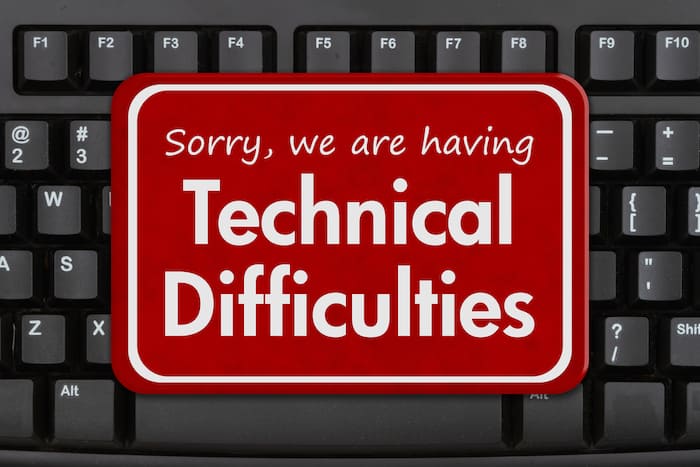History will treat Monday and Tuesday as days the tech world would love to forget.
Monday was Black Monday for those who rely on Facebook, Instagram, and WhatsApp. All of these Facebook-owned properties went down for around eight hours, leaving a lot of people confused and services such as Twitter booming with the extra traffic. This was a critical outage that even affected Facebook employees and their internal systems, making it impossible for many people at Facebook to use anything they needed to get their jobs done.
Facebook wrote a blog post about the outage on Monday night, informing us that:
“configuration changes on the backbone routers that coordinate network traffic between our data centers caused issues that interrupted this communication. This disruption to network traffic had a cascading effect on the way our data centers communicate, bringing our services to a halt.”
While that might not mean anything to many of us, suffice it to say that it was tantamount to a massive power failure for people and businesses around the world that use Facebook. The outage cost Facebook a cool $100 million, at the same time that its stock was taking a horrible beating because of Sunday night’s 60 Minutes appearance by Facebook whistleblower Frances Haugen, who would also go on to testify in front of Congress on Tuesday. Really, to say that this hasn’t been a great week for Facebook would be a massive understatement.
Then on Tuesday night, Twitch asked Facebook to hold their meme beer, as it endured one of the most significant cyberattacks of this tech-rich millennium.
For those blissfully unfamiliar with Twitch, it’s a live-streaming service that focuses primarily but not exclusively on gaming. While everyone knows Facebook’s Mark Zucherberg, Twitch was founded around 15 years ago by Justin Kan, who decided to strap a camera to his head and livestream. Kan sold Twitch for just under $1 billion and went on to launch a failed law firm, Atrium, which quickly burned through $75 million of capital.
I’ve been on Twitch several times as a guest on “TV” and radio programs, as it allows a station to broadcast live to the Twitch community at the same time as it broadcasts in another medium. So it could be doing live radio on a traditional radio channel as it does live video for more people than you would imagine on Twitch.
This Twitter user, @Sinoc229, was among the first to sound the siren, which showed the depth of the Twitch leak. While there was initial disbelief on social media that any of this actually happened, it was confirmed in the very early hours of this morning. All kinds of information was leaked, including a document that showed what some Twitch users were earning on the site. The leak revealed 35 Twitch users who earned in excess of $5,000,000, with two who earned more than $32,000,000 on the site.
All of this is contextually great to help us understand how big Twitch is. The service is projected to earn over $3 billion in 2021 with no signs until last night that it would slow down. But why should you and I really care about this? Is it anything more than an inconvenience for those who prefer certain social media platforms or who enjoy streaming and online gaming?
Absolutely. These are massive security breaches that test the elasticity of everything we do online. As these breaches test what the technology can and can’t do, how well systems and teams can prevent outages and attacks, people and organizations watch and learn. When the elastic snaps, as it has multiple times this week, we are left with some degree of chaos. Well we can be philosophical this Wednesday and write and read an analysis such as this, it would be a little bit more intense if, for example, our online banking went down.
Josh Geist, a Pittsburgh lawyer, observes that we are all at risk when these events happen:
“While the security breaches and outages we have seen this week with Twitch, Facebook, and the like are an inconvenience, it creates vulnerabilities for sensitive information we have online. Passwords that we may use across platforms, tie-ins to banking information, and other personal and sensitive information, including links to our online and real identities, can all be exposed when the platforms and systems we trust fail us.”
This also serves as another reminder of how dependent we have become in the most basic aspects of our daily lives on these technologies. It’s one thing when an outage means that we can’t get our UberEats but another when the tech we rely on as part of the architecture of how we live isn’t there.
One close friend surprisingly sent me an SMS early Monday afternoon (I never get SMSes as I do everything on WhatsApp) explaining that their spouse was being admitted to hospital and everyone was really upset because people thought that messages on WhatsApp had been sent and received before everyone realized that there was a larger problem. This probably was certainly replicated millions of times on Monday as people went to other online sources to learn that the technologies they needed were out. One can only imagine what the impact on all of us would be the next time a Black Monday runs even broader and deeper.
While there will surely be a lot more to digest on these still-breaking stories over the next few days and even weeks, this all serves as one more critical reminder than as most of us spend significantly more time online, we may become significantly less safe.

Aron Solomon
A Pulitzer Prize-nominated writer, Aron Solomon, JD, is the chief legal analyst for Esquire Digital and Today’s Esquire. He has taught entrepreneurship at McGill University and the University of Pennsylvania, and was elected to Fastcase 50, recognizing the top 50 legal innovators in the world. Aron has been featured in Fast Company, Fortune, Forbes, CBS News, CNBC, USA Today, ESPN, Today’s Esquire, TechCrunch, The Hill, BuzzFeed, Venture Beat, The Independent, Fortune China, Yahoo!, ABA Journal, Law.com, The Boston Globe, and many other leading publications across the globe.







